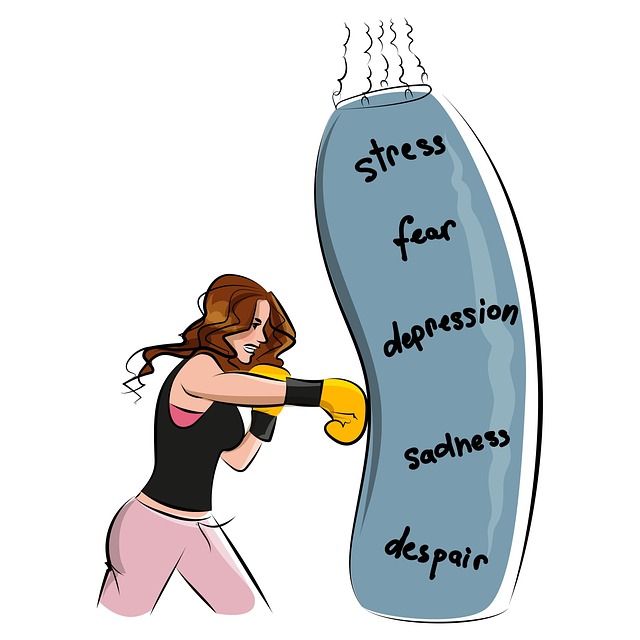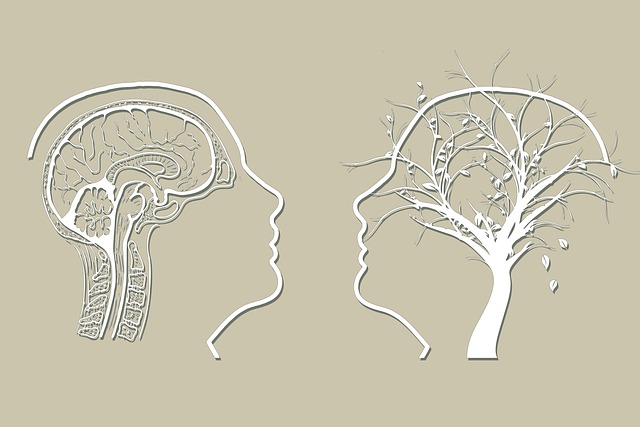Burnout among healthcare providers, driven by high-stress environments, negatively impacts well-being and patient care. Lafayette Mindfulness Therapy offers evidence-based mindfulness practices and stress management strategies to enhance resilience. Their holistic approach, including community outreach programs focused on Mental Illness Stigma Reduction, creates supportive networks, prevents burnout, and improves healthcare professionals' overall well-being. By integrating short meditation sessions, fostering open communication through group therapy, and implementing organizational support like flexible work arrangements, Lafayette Mindfulness Therapy empowers medical professionals to sustain passion and focus in today's fast-paced healthcare landscape.
Healthcare provider burnout is a growing concern, impacting not just individuals but the entire healthcare system. This article explores strategies to prevent and combat burnout among healthcare professionals. We delve into understanding the root causes, offering solutions like Lafayette Mindfulness Therapy for holistic wellness. Additionally, we provide practical daily techniques and emphasize fostering supportive work environments. By implementing these strategies, healthcare providers can enhance resilience, improve patient care, and achieve a more fulfilling profession.
- Understanding Burnout Among Healthcare Providers
- Lafayette Mindfulness Therapy: A Holistic Approach
- Practical Strategies for Daily Implementation
- Fostering a Supportive Work Environment
Understanding Burnout Among Healthcare Providers

Burnout among healthcare providers is a growing concern, impacting both individual well-being and patient care quality. Recognizing burnout early involves understanding its signs and symptoms, which can manifest as emotional exhaustion, depersonalization, and reduced personal accomplishment, often stemming from prolonged exposure to high-stress environments like hospitals or clinics. The demanding nature of healthcare work, coupled with long hours and heavy caseloads, contributes significantly to this issue.
Lafayette Mindfulness Therapy offers valuable insights into addressing burnout through evidence-based practices tailored for mental health professionals. By incorporating techniques such as mindfulness meditation and stress management strategies, healthcare providers can enhance their resilience. Moreover, community outreach programs aimed at Mental Illness Stigma Reduction Efforts play a crucial role in fostering supportive environments, both within the workplace and globally, ultimately contributing to preventing and managing burnout effectively.
Lafayette Mindfulness Therapy: A Holistic Approach

Lafayette Mindfulness Therapy offers a holistic approach to combating burnout among healthcare providers. This innovative program recognizes that stress and burnout stem from various aspects of professionals’ lives, requiring a multifaceted solution. By incorporating mindfulness meditation techniques into their practice, healthcare workers can learn to manage their mental well-being more effectively. The therapy focuses on teaching simple yet powerful tools to navigate through the challenges of demanding work environments.
Through regular sessions, participants gain insights into stress reduction methods, enabling them to create healthier routines and boundaries. Lafayette Mindfulness Therapy goes beyond individual practice by fostering a sense of community among peers. This supportive network encourages open discussions and shared experiences, enhancing the overall well-being of the healthcare team. Such initiatives prove invaluable in preventing burnout, ensuring that medical professionals can continue to provide exceptional care with sustained passion and focus.
Practical Strategies for Daily Implementation

In the fast-paced world of healthcare, burnout is a very real concern for providers. However, preventing burnout doesn’t have to be an abstract concept; it can be tackled with practical strategies incorporated into daily routines. One effective method is integrating mindfulness practices, such as those offered by Lafayette Mindfulness Therapy. Short meditation sessions or breathing exercises between patient interactions can help healthcare workers regain focus and reduce stress. These moments of calm can significantly enhance emotional resilience and overall well-being.
Additionally, fostering a sense of community through social skills training and participation in community outreach programs can alleviate burnout. Connecting with peers and sharing experiences builds support networks that are crucial for navigating challenging situations. Engaging in community initiatives also offers a much-needed change of pace, allowing healthcare providers to contribute beyond their clinical roles. While depression prevention strategies are essential, these broader approaches aim to cultivate resilience and sustain long-term satisfaction in the profession.
Fostering a Supportive Work Environment

Creating a supportive work environment is a key strategy to prevent healthcare provider burnout. This involves cultivating a culture where open communication and collaboration are encouraged, fostering a sense of belonging among colleagues. Implementing regular team-building activities, such as group therapy sessions or mindfulness workshops offered by Lafayette Mindfulness Therapy, can significantly enhance emotional support and reduce stress levels. These initiatives help professionals connect on a personal level, share experiences, and offer mutual encouragement, all vital aspects in building resilience against burnout.
Furthermore, organizational leaders should prioritize employee well-being by offering flexible work arrangements, promoting reasonable workload distribution, and providing access to mental wellness coaching programs and self-care routine development resources. Public Awareness Campaigns Development can also play a role in educating staff about burnout prevention, encouraging self-reflection, and fostering a pro-active approach towards maintaining good mental health.
In addressing healthcare provider burnout, a multifaceted approach is essential. While understanding the prevalence and causes of burnout is crucial, practical strategies like Lafayette Mindfulness Therapy offer a holistic solution. By integrating mindfulness techniques into daily routines, healthcare professionals can enhance resilience and well-being. Additionally, fostering supportive work environments that prioritize open communication and workload management is vital for preventing burnout. Implementing these strategies collectively ensures a healthier, more sustainable workforce dedicated to delivering quality patient care.














